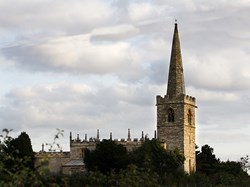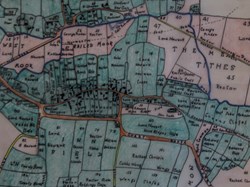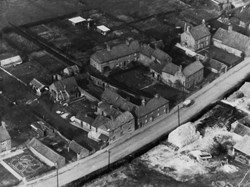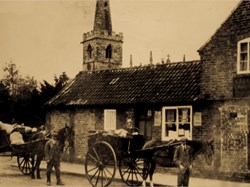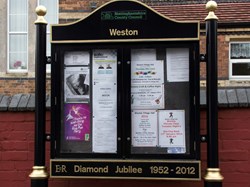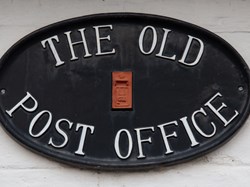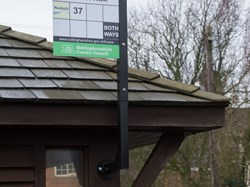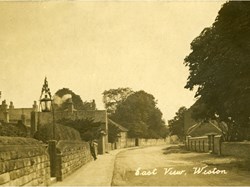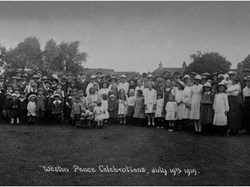Home
Welcome to our parish website
Weston Parish Council is committed to working for the good of the whole of Weston Parish and wants to hear your views on what we should be doing to support the local community. All your ideas are welcomed. Please take a moment to explore the village website and contact us with any suggestions, improvements or ideas to improve our village.
The main organisations within the village are below and have tabs that can be accessed for more information.
The Parish Council is the lowest tier of local government and closest to its people. It consists of 7 elected (unpaid) Councillors and 1 (paid) professional Clerk. Together we deliver local services and represent your local interests. All minutes and agenda are shown in the Parish Council section of the website.
The Weston Village Hall is a charity run by a small, committed, group of villagers who look after the Village Hall and raise much needed funds for its upkeep. They organise a monthly coffee morning, quizzes and pub nights as well as administer the Hall for third party bookings.
All Saints Church is our village church dating back to the 13th Century. As part of its mission to serve the local community, All Saints Church is open for enquires for baptisms, weddings and other services.
History of Weston
Weston is a village and civil parish on the northern edge of the Newark & Sherwood district of Nottinghamshire. Nearby larger towns include Newark on Trent which is 11 miles south of the village and Retford, which lies 10 miles to the north.
The village lies just off the Great North Road (now the B1164) and with the A1 passing close by enjoys very good road connections with Lincoln, Nottingham, Doncaster and Sheffield all less than an hour’s journey away. The East Coast Main line passes close to the east of the village and is served by the nearby stations in both Newark and Retford. The village also enjoys a reasonable bus service and is serviced by the local route 37: Newark - Tuxford - Retford.
In the 1851 census Weston had a total population of 482, however according to the 2011 census, the population had reduced to 393. The village retains its largely rural characteristic and development within the village is limited in line with Newark and Sherwood District Council’s Core Strategy.
Today, it has become largely a commuting community. In addition to local farming businesses, the village has a number of employers, the main one being Hutchinson Engineering Services Ltd, an agricultural engineering and plant hire company. Hall Farm supply bird seed, bird feeders, wild bird mixes, and related products from the Grain Store on Wadnall Lane. Cupit Plant Hire are plant hire and excavation specialists. Wemix Concrete Ltd provides ready mix concrete throughout the local area. A1 Weston Woodcraft manufacture traditional doors and windows. The many coaching inns the village once boasted are now closed with The Great Wall, a Chinese take away, now occupying the site of one of the former local pubs. Chestnut Grange, which was formerly the Rectory, is now a privately run facility offering a home to young people with learning difficulties.
Richard Hawksworth gave £50 to build a school in the village towards the end of the 18th century. He further endowed it with five acres of land at South Scarle, the annual rent for which in 1832 was £7 and was sufficient to employ a schoolmaster to teach 10 children. The school has now closed and today's children attend primary schools in the neighbouring villages of Sutton on Trent, Normanton and Norwell. At secondary level Weston falls within the catchment of Tuxford Academy, and is also served by a number of independent schools within the area.
Weston can trace its origins back to Domesday when the estate belonged to Roger de Busli and had a water mill, three working windmills and a Norman church. The parish was enclosed in 1795. During the coaching era the Black Lyon Coaching Inn situated on the Great North Road was a major posting inn and in 1828 a carrier service was operated to Retford and London from the Bluebell Inn on Bell Lane. In 1853 the parish is recorded as comprising of 1,650 acres of land, half of which was owned by Earl Manvers, and 487 inhabitants. (Taken from White’s ‘Directory of Nottinghamshire’, 1853).
